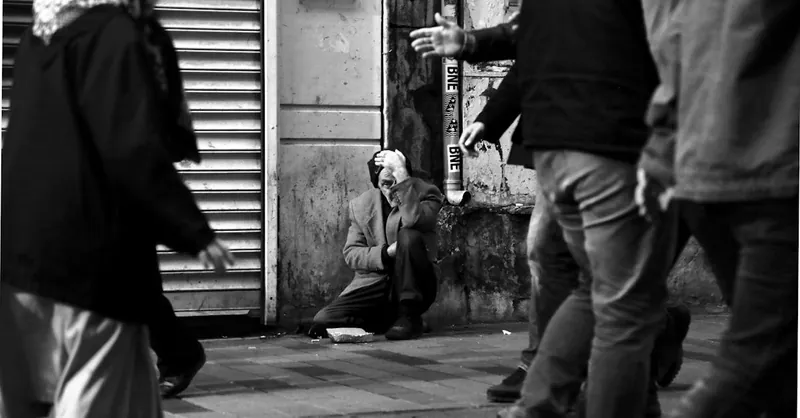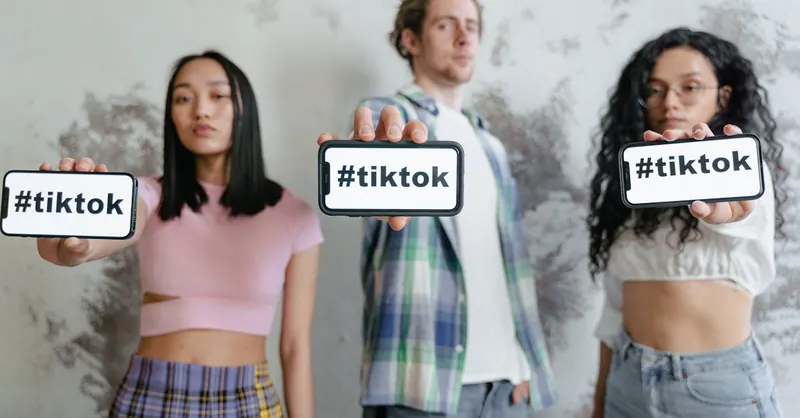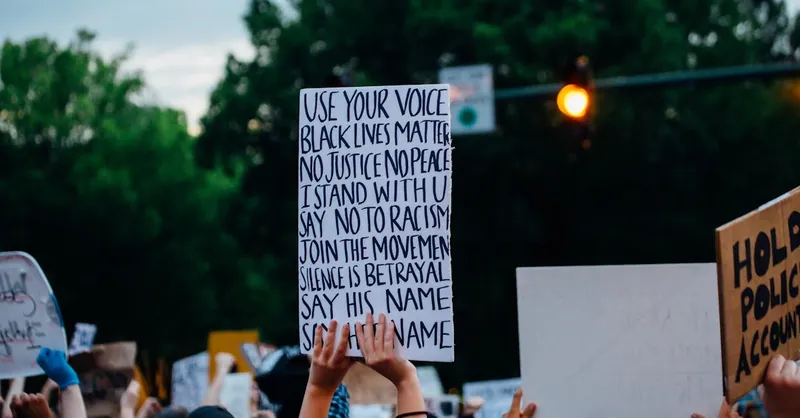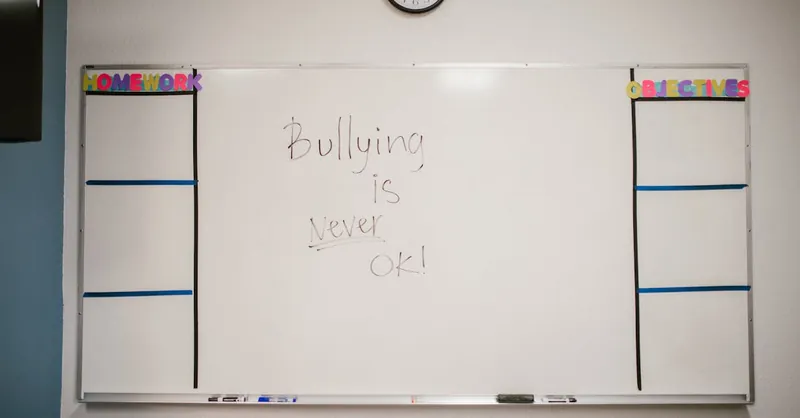Exposing Karens Making False Accusations: The Hidden Impact
Category: Social Issues
Why Karens Making False Accusations Demand Our Attention
In today’s hyper-aware social climate, stories about 'Karens' making false accusations have surged, sparking heated debates around entitlement, justice, and social responsibility. You’ve likely encountered viral incidents where individuals—often labeled as 'Karens'—wrongfully accuse others, precipitating serious consequences that ripple through communities or workplaces. If you’re a socially conscious reader looking to understand the deeper ramifications behind these events, you’ve landed in the right place. This post unpacks the complex dynamics beyond viral videos, exploring how entitlement disguises itself in false claims and stirs broader social injustices. Unlike many surface-level commentaries, we’ll scrutinize structural causes, psychological factors, and societal impacts—helping you grasp not only the personal but also the cultural consequences of such behavior. Whether you are an activist, a concerned citizen, or a cultural analyst, this guide cuts through sensationalism to reveal the real harm caused and how we might address it. Dive in to gain a nuanced perspective on why the ‘Karen phenomenon’ is more than meme fodder—it's a critical lens on fairness, justice, and social disruption.
- Why Karens Making False Accusations Demand Our Attention
- Defining the ‘Karen’ Phenomenon: Origins, Stereotypes, and Social Context
- What Constitutes a False Accusation? Legal and Social Dimensions
- Common Scenarios Involving Karens Making False Accusations: Retail, Workplace, and Public Spaces
- Psychological and Social Drivers Behind False Accusations: Entitlement, Bias, and Power Dynamics
- Impact of False Accusations on Victims: Emotional, Social, and Economic Consequences
- The Role of Social Media and Viral Culture in Amplifying Karen Incidents
- How False Accusations Distort Social Justice Efforts and Erode Trust
- Strategies for Addressing and Mitigating False Accusations by Karens: Community and Policy Approaches
- Case Studies Highlighting the Complexity and Varied Outcomes of Karen False Accusations
- Preventive Measures and Public Education to Combat Entitlement-Driven Disruptions
Defining the ‘Karen’ Phenomenon: Origins, Stereotypes, and Social Context
The term “Karen” has rapidly evolved from internet slang into a powerful cultural shorthand representing a specific type of entitled, demanding, and often confrontational individual—typically a middle-aged white woman—who uses their perceived social privilege to assert dominance or control unjustly. The origins of the Karen meme trace back to social media platforms where viral videos captured instances of people behaving with undue arrogance, often calling authorities or making baseless accusations against others. Over time, this caricature expanded beyond mere annoyance to symbolize systemic entitlement, especially where such behavior disrupts social cohesion and justice.
At its core, the Karen stereotype encapsulates several key characteristics:
- A sense of entitlement based on race, class, or gender privilege
- A proclivity for invoking authority to escalate minor disputes
- An inclination toward false or exaggerated accusations, often disproportionately targeting marginalized groups
- A lack of awareness or concern for the broader consequences of their actions
These traits do not exist in a vacuum—they reflect a wider social context where historical power imbalances and ingrained prejudices enable some individuals to weaponize their privilege. The archetype of the Karen is not simply about one bad actor but signals a recurring pattern where entitlement manifests through false claims, misuse of social and legal systems, and disruption of equitable interactions. Understanding this phenomenon requires recognizing how societal structures and stereotypes feed into behaviors that promote injustice under the guise of “concern” or “civility.” This critical context helps explain why false accusations by Karens do not just inconvenience others—they can exacerbate social divides and perpetuate unfairness on a systemic level.

Image courtesy of Keira Burton
What Constitutes a False Accusation? Legal and Social Dimensions
At the heart of the “Karen” phenomenon lies the troubling issue of false accusations, which have serious implications both legally and socially. A false accusation occurs when someone claims wrongdoing by another individual without factual basis, often intending to harm reputations, evade responsibility, or leverage perceived authority. In the context of Karens, these accusations frequently escalate from minor disputes into formal complaints, sometimes involving law enforcement or institutional authorities, thereby triggering disproportionate consequences for the accused.
Legal Definition and Consequences
Legally, a false accusation can be defined as an assertion that is proven untrue and made either knowingly or with reckless disregard for the truth. This form of malicious claim can result in legal ramifications such as defamation lawsuits, perjury charges, or wrongful prosecution. However, proving false accusations in court is often complex, requiring clear evidence of intent and factual inaccuracies. The challenge is compounded when accusations exploit racial, class, or gender biases, as the law must balance protecting victims of genuine wrongdoing with preventing abuse of the justice system.
Social Impact and Broader Implications
Socially, false accusations by Karens undermine trust in community interactions and institutional processes. They often weaponize social privilege, disproportionately targeting marginalized groups, and perpetuate cycles of discrimination and social injustice. This misuse of authority not only damages the immediate victims but also erodes public confidence in reporting mechanisms, making it harder for legitimate grievances to be addressed fairly. The ripple effects include:
- Stigmatization and psychological harm to innocent individuals.
- Erosion of social cohesion through increased mistrust and division.
- Reinforcement of systemic inequalities by enabling privileged individuals to skew justice.
Understanding the dual nature of false accusations—as both a legal issue and a catalyst for social discord—highlights why addressing Karen-style entitlement is essential for fostering a just and equitable society. Recognizing these dimensions also informs more balanced responses that protect genuine victims while curbing the misuse of power inherent in such accusations.

Image courtesy of Yan Krukau
Common Scenarios Involving Karens Making False Accusations: Retail, Workplace, and Public Spaces
False accusations by Karens frequently unfold across everyday environments—retail stores, workplaces, and public spaces—where entitlement and social privilege intersect to create flashpoints of injustice and conflict. In retail settings, for example, Karens often accuse employees or customers of theft, misconduct, or rule-breaking without evidence, leveraging their perceived authority to demand police involvement or punitive action. These baseless claims can lead to wrongful detainments, job losses for employees, and lasting reputational damage for innocent parties.
Similarly, in the workplace, false accusations by Karens might manifest as claims of harassment, discrimination, or safety violations fabricated or exaggerated to gain leverage or deflect accountability. Such misconduct not only disrupts organizational harmony but also diverts resources from legitimate complaints, fostering toxic environments and undermining trust in human resources procedures.
Public spaces—parks, public transit, or neighborhoods—are also frequent arenas where Karens assert dominance through false accusations, often targeting marginalized individuals based on racial or socioeconomic biases. These incidents might involve calling law enforcement on innocent people for perceived suspicious behavior or minor social infractions, thereby perpetuating systemic discrimination and social fragmentation.
These recurring scenarios share common threads:
- Exploitation of social privilege to intimidate or control others.
- Disproportionate escalation of minor disputes into formal complaints.
- Targeting of vulnerable or marginalized groups, intensifying societal inequities.
- Disruption of institutional trust as false accusations complicate genuine grievance procedures.
Understanding these typical contexts is key to recognizing patterns of Karen-driven injustice and underscores the necessity for clear policies, awareness training, and accountability mechanisms that mitigate harm and promote equitable treatment in daily interactions.

Image courtesy of LT Chan
Psychological and Social Drivers Behind False Accusations: Entitlement, Bias, and Power Dynamics
At the core of many false accusations made by Karens are deeply rooted psychological and social drivers that fuel their behavior. Understanding these drivers is crucial to grasp why entitlement, bias, and power imbalances often manifest as unjust claims with far-reaching consequences. Psychologically, the need for control and validation plays a significant role. Individuals exhibiting Karen-like behavior frequently seek affirmation of their social dominance in environments where they perceive threats to their status or comfort. This manifests as an exaggerated sense of entitlement, where they believe their perspective or grievances supersede factual truth or the rights of others.
Moreover, implicit biases—particularly concerning race, class, and gender—heavily influence who becomes the target of false accusations. Research shows that individuals with societal privilege are more likely to trust their subjective judgments while discounting others’ lived experiences. This cognitive bias often leads to wrongful assumptions and discriminatory accusations, disproportionately impacting marginalized communities. Karens’ false accusations thereby function as a mechanism to reinforce existing social hierarchies, leveraging systemic inequalities to assert control.
The power dynamics at play cannot be overstated. Karens often wield their social, racial, or institutional privilege as a weapon, coercing compliance or escalating minor issues into matters involving law enforcement or organizational sanctions. This dynamic not only silences or harms victims but also disrupts equitable conflict resolution. Recognizing these interconnected drivers—entitlement as a psychological need, bias as a distorted perception, and power as a tool of enforcement—provides essential insight into why false accusations persist as a troubling social issue, enabling more effective strategies to challenge and mitigate this disruptive behavior.

Image courtesy of Amirr Zolfaghari
Impact of False Accusations on Victims: Emotional, Social, and Economic Consequences
False accusations made by Karens inflict profound and multi-layered damage on their victims, extending far beyond the initial incident. Emotionally, those wrongfully accused often experience intense stress, anxiety, and trauma, knowing their integrity and reputation have been unjustly attacked. The sudden betrayal and public scrutiny can lead to mental health struggles like depression and post-traumatic stress disorder (PTSD), especially when accusations escalate to legal or social media exposure. Victims frequently describe a lasting sense of vulnerability and fear, as their social standing and personal safety feel compromised by unfounded claims.
On a social level, false accusations can isolate victims from their communities, workplaces, or social networks. The stigma associated with an accusation—even if disproven—can damage relationships and undermine trust, making reintegration difficult. Furthermore, when these accusations derive from biased actions by entitled individuals, marginalized groups are disproportionately impacted, perpetuating social exclusion and systemic inequities. The erosion of community cohesion that follows emphasizes how Karens’ false allegations sow division and distrust on a broader scale.
Economically, the consequences can be equally devastating. Victims may face job loss, legal expenses, or career derailment as a result of baseless accusations. This financial strain often compounds emotional and social harms, creating a cycle that is difficult to escape. In workplaces, reputational damage can hinder future employment opportunities, while in retail or service environments, unjust allegations may lead to wrongful termination or blacklisting. The cumulative effect of these emotional, social, and economic consequences reveals how false accusations by Karens not only harm individuals but also perpetuate systemic injustice by exploiting societal vulnerabilities and reinforcing inequitable power dynamics.

Image courtesy of The Humantra
The Role of Social Media and Viral Culture in Amplifying Karen Incidents
Social media platforms have become the primary battleground for Karen-related incidents, dramatically amplifying the reach and impact of false accusations. The viral nature of these platforms turns isolated events into public spectacles almost overnight, often stripping away nuance and context in favor of sensationalism. When a Karen’s false accusation goes viral, it fuels a feedback loop where outrage spreads quickly, drawing widespread attention from millions of users who may never witness the full reality of the situation.
This viral culture rewards outrage clicks and shareability, incentivizing the rapid dissemination of clips showing entitlement and conflict. Unfortunately, this often leads to misinformation, online harassment, and trial-by-public-opinion scenarios that can ruin reputations before any formal investigation occurs. Social media also equips Karens with a megaphone, encouraging performative victimhood and entrenching a sense of unchecked power through widespread public validation, even when their claims lack merit.
Key effects of social media on Karen false accusations include:
- Acceleration of public judgment, where instant viral exposure replaces careful fact-finding.
- Polarization and tribalism, as supporters and detractors clash, deepening social divides.
- Amplification of systemic bias, since marginalized targets often endure compounded scrutiny and hostility online.
- Erosion of privacy and due process, with private disputes becoming public controversies subjected to online mobs.
Ultimately, social media and viral culture don’t just reflect Karen incidents—they actively shape and worsen the consequences, making it essential for users, platforms, and policymakers to cultivate media literacy, promote accountability, and discourage exploitation of false accusations for personal or performative gain.

Image courtesy of MART PRODUCTION
How False Accusations Distort Social Justice Efforts and Erode Trust
False accusations made by Karens have a corrosive effect that extends far beyond individual incidents—they undermine the integrity of social justice movements and erode trust within communities and institutions. When baseless claims are amplified, they cloud the legitimacy of genuine grievances and create skepticism toward all reports of discrimination or harassment. This skepticism poses a serious setback for marginalized groups striving for equity, as their legitimate claims risk being dismissed or doubted because of the high-profile misuse of social and legal systems by entitled individuals.
Moreover, false accusations skew the focus of justice efforts by diverting critical resources, attention, and empathy away from those who truly need support. Institutions tasked with addressing issues of bias, harassment, and inequality may become overwhelmed or hesitant, fearing exploitation of their processes for personal vendettas or performative outrage. This dynamic fosters a culture of mistrust and procedural fatigue, where victims may feel discouraged from coming forward, fearing disbelief or backlash.
Key impacts include:
- Dilution of social justice advocacy, as false claims feed narratives used by opponents to discredit equity campaigns.
- Widening divides between communities, especially when accusations reinforce existing prejudices rather than dismantle them.
- Weakening institutional credibility when systems are perceived as vulnerable to manipulation or bias.
- Perpetuation of systemic injustice, ironically enabled by those publicly championing fairness while weaponizing privilege.
Recognizing how false accusations disrupt social justice efforts is crucial for fostering balanced dialogue, reinforcing accountability, and rebuilding trust. Solutions demand not only addressing individual behaviors but also strengthening transparent, fair, and evidence-based mechanisms that protect all parties—ensuring that the fight for justice is not hijacked by entitlement and misinformation.

Image courtesy of Kelly
Strategies for Addressing and Mitigating False Accusations by Karens: Community and Policy Approaches
Effectively addressing the surge of false accusations by Karens requires a multipronged approach that combines community awareness, institutional reform, and robust policy frameworks. At the community level, fostering education and empathy is crucial. Raising awareness about the harmful consequences of entitlement and false claims helps individuals recognize and challenge these behaviors early on. Community workshops, diversity training, and public dialogues can equip bystanders and potential targets with tools to de-escalate conflicts and support victims, thereby reducing the power Karens wield through social privilege and misinformation.
From a policy perspective, organizations and institutions must adopt clear protocols and accountability measures that distinguish between legitimate complaints and abusive accusations. This involves creating transparent reporting channels that protect both the accuser and the accused, ensuring thorough evidence-based investigations before acting on claims. Additionally, implementing anti-retaliation policies and bias training for front-line staff and law enforcement can reduce the risk of scapegoating marginalized groups and prevent the weaponization of authority for personal agendas.
Key strategies include:
- Enhanced training programs focused on implicit bias, de-escalation techniques, and cultural competence for employees in retail, workplace, and public service sectors.
- Policy reform that mandates verification procedures and penalizes malicious false reporting to deter abuse.
- Community engagement initiatives to build solidarity and educate about the social impact of entitlement-driven accusations.
- Legal support frameworks to assist victims of false accusations in seeking redress and restoring their reputations.
By integrating these community-driven and policy-based approaches, society can mitigate the damage caused by Karen-style false accusations, promote fairer conflict resolution, and safeguard social justice efforts from being undermined by entitlement and misinformation.

Image courtesy of RDNE Stock project
Case Studies Highlighting the Complexity and Varied Outcomes of Karen False Accusations
Examining real-world case studies of Karen false accusations reveals the intricate and often unpredictable nature of these incidents, demonstrating how entitlement-driven claims can lead to a range of outcomes—from minor social fallout to severe legal and personal consequences. These examples underscore that false accusations are not a monolith; each scenario reflects unique power dynamics, societal reactions, and institutional responses, illustrating the multifaceted damage caused by such behavior.
High-Profile Retail Incidents
In numerous widely publicized retail confrontations, Karens have falsely accused employees of theft or misconduct, leading to wrongful detainment, public shaming, and even job terminations. For instance, several cases involved middle-aged white women accusing Black customers or staff without evidence, triggering viral social media outrage and corporate investigations. While some incidents ended with apologies and policy reviews, others escalated into lawsuits or police inquiries, showing how quickly false accusations can spiral. These cases spotlight how racial bias and social privilege combine to fuel injustice, often requiring careful institutional checks to prevent disaster.
Workplace False Claims
Other case studies emerge from workplace environments, where Karen-like behavior manifests as unfounded complaints of harassment or discrimination aimed at colleagues or supervisors. Outcomes here vary significantly: some accusations prompt internal reviews that exonerate the accused but leave lingering distrust; others result in wrongful suspensions or settlements, highlighting the cost of failing to adequately distinguish between genuine and malicious claims. These workplace narratives emphasize the importance of robust procedural safeguards and unbiased investigations to protect all parties and maintain organizational integrity.
Public Space Escalations
In public settings such as parks, public transit, or neighborhoods, false accusations by Karens frequently revolve around perceived suspicious behavior by marginalized individuals. Case studies often feature calls to law enforcement that subject innocent people to unnecessary scrutiny, arrest, or trauma. Some outcomes include community backlash against the accuser, while others unfortunately reinforce existing racial or class prejudices within law enforcement and society at large. These situations illustrate the dangerous social consequences of unchecked entitlement, showing how systemic changes in policing and community education are crucial to mitigating harm.
Key Takeaways from Case Studies
- False accusations driven by entitlement rarely remain isolated incidents; they have ripple effects on victims, communities, and institutions.
- Outcomes vary widely, influenced by factors like public exposure, institutional response, and legal frameworks.
- Case studies reveal the need for balanced approaches that protect genuine complaint processes while preventing exploitation of power.
- Intersectionality matters: race, gender, and class biases deeply influence who is targeted and how situations unfold.
By analyzing these case studies, we deepen our understanding of the complex realities behind Karen false accusations, moving beyond stereotypes to grasp the broad social, legal, and emotional ramifications. This awareness is vital for crafting informed strategies that address entitlement-fueled injustice while upholding fairness and accountability in every sector of society.

Image courtesy of Yan Krukau
Preventive Measures and Public Education to Combat Entitlement-Driven Disruptions
Addressing the root causes of false accusations by Karens begins with proactive preventive measures and widespread public education aimed at dismantling entitlement and promoting social responsibility. Prevention must focus on raising awareness about the harmful impact of entitlement-driven behavior before it escalates into unjust accusations that disrupt communities and institutions. Educational initiatives should emphasize the importance of empathy, critical thinking, and respect for due process, cultivating an informed public that questions impulsive claims and refrains from abusing authority.
Key preventive strategies include:
- Comprehensive bias and empathy training in schools, workplaces, and public service sectors to challenge ingrained prejudices and reduce impulsive entitlement behaviors.
- Public campaigns highlighting the consequences of false accusations, using real-life examples to humanize victims and underscore the social, emotional, and economic harm caused.
- Encouraging bystander intervention programs that empower witnesses to de-escalate conflicts and discourage the misuse of privilege before situations spiral out of control.
- Promotion of media literacy, teaching individuals to critically analyze viral incidents involving accusations—distinguishing fact from sensationalism and resisting participatory outrage.
- Policy frameworks that mandate transparency and accountability, discouraging frivolous or malicious complaints by setting clear consequences for false reporting.
By integrating these preventive educational efforts with structural reform, communities can weaken the social acceptability of Karen-style entitlement and reduce the frequency of disruptive false accusations. Public education thus plays a crucial role in shifting cultural norms away from entitlement and toward collective responsibility, fairness, and respect for all individuals regardless of background. This foundation allows institutions and society at large to better uphold justice while protecting vulnerable groups from the injustice inflicted by malicious claims.

Image courtesy of RDNE Stock project
